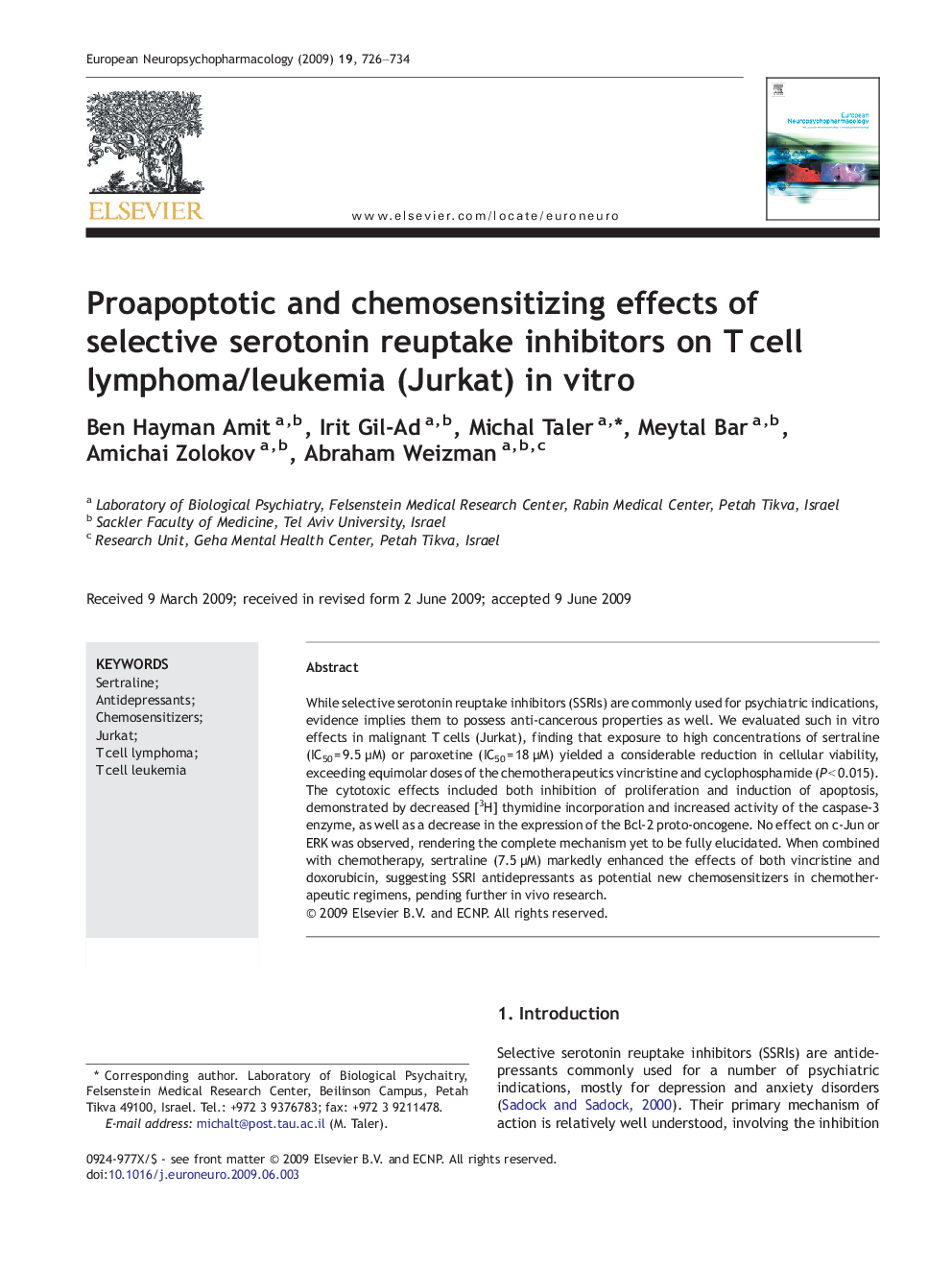| Article ID | Journal | Published Year | Pages | File Type |
|---|---|---|---|---|
| 319011 | European Neuropsychopharmacology | 2009 | 9 Pages |
While selective serotonin reuptake inhibitors (SSRIs) are commonly used for psychiatric indications, evidence implies them to possess anti-cancerous properties as well. We evaluated such in vitro effects in malignant T cells (Jurkat), finding that exposure to high concentrations of sertraline (IC50 = 9.5 µM) or paroxetine (IC50 = 18 µM) yielded a considerable reduction in cellular viability, exceeding equimolar doses of the chemotherapeutics vincristine and cyclophosphamide (P < 0.015). The cytotoxic effects included both inhibition of proliferation and induction of apoptosis, demonstrated by decreased [3H] thymidine incorporation and increased activity of the caspase-3 enzyme, as well as a decrease in the expression of the Bcl-2 proto-oncogene. No effect on c-Jun or ERK was observed, rendering the complete mechanism yet to be fully elucidated. When combined with chemotherapy, sertraline (7.5 µM) markedly enhanced the effects of both vincristine and doxorubicin, suggesting SSRI antidepressants as potential new chemosensitizers in chemotherapeutic regimens, pending further in vivo research.
